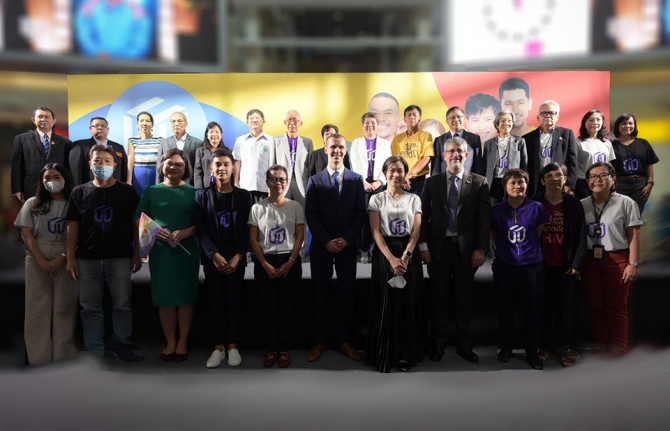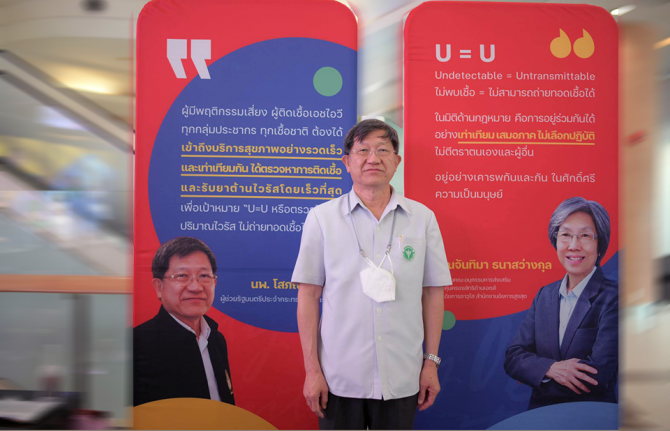



Feature Story
Preventing transmission and tackling stigma: The power of U=U
12 December 2022
12 December 2022 12 December 2022U=U, which stands for Undetectable = Untransmittable, is a vital public health message for the HIV response. Undetectable = Untransmittable means that people living with HIV who achieve an undetectable viral load through consistent antiretroviral treatment and monitoring cannot transmit HIV. As Thailand has shown, the message of U=U also helps in combatting the stigma which people living with HIV can face in healthcare settings and wider society.
U=U is a priority activity in Thailand’s 2017 – 2030 National Strategy to End AIDS. The approach has already been tested in the capital city, Bangkok. A same-day treatment initiation programme there has resulted in more than 95% of people on treatment achieving viral suppression after just six months of antiretroviral therapy. The national initiative brings together Thailand’s Institute for HIV Research and Innovation (IHRI), the Department of Disease Control, the Ministries of Public Health, Education and Labor, the National Health Security Office, and the Subcommittee on the Promotion and Protection of AIDS Rights, supported by UNAIDS.
Thailand’s wider HIV response has achieved strong results, with an estimated 94% of people living with HIV aware of their status, 91% of diagnosed people on treatment and 97% of those on treatment virally suppressed. But despite these successes, barriers remain as a result of stigma. There are too many late diagnoses, and some people remain fearful about accessing HIV services. To increase use of HIV services, to achieve U=U for all people living with HIV, it is vital to ensure that every person is treated with respect and dignity by the healthcare system.
Dr. Nittaya Phanuphak, Executive Director of the IHRI, emphasized that knowing one’s HIV status is the critical first step to enrolling in antiretroviral treatment.
“People at risk of contracting HIV and people living with HIV from all groups in Thailand must have equal and convenient access to HIV testing and, if positive, to antiretroviral treatment as soon as possible, which will lead to U=U,” said Deputy Minister of the Public Health Ministry, Dr. Sopon Makthon.
Thailand’s U=U initiative embraces a community-led approach which enables people living with HIV to support others who are newly diagnosed to start and stay on antiretroviral treatment. “Community leadership is vital to communicate U=U effectively,” said Patchara Benjarattanaporn, UNAIDS Country Director for Thailand. “This will help tackle stigma and self-stigma, and help boost positive health-seeking behavior.”
Apiwath Kwangkaew, president of the Thailand HIV/AIDS Network, urged all health workers to amplify the message of U=U: “Today's medical personnel must confidently explain U=U to enable social understanding. Health services must be brave and speak up. New understanding will bring change,” Mr. Kwangkaew said.
“UNAIDS welcomes amplification of the message that U=U. It is key to reaching the goal of zero new HIV infections, zero discrimination and zero AIDS-related deaths,” concluded Taoufik Bakkali, UNAIDS’ Regional Director.



